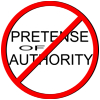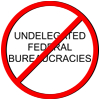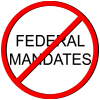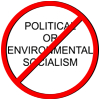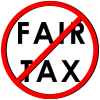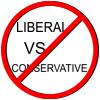|
American Patriot Party
Regarding
Enterprises of Ambition, Monopolies and
Socialist Collectives
1.) Founders Related Documents
2.) Placing Checks on Old World Habits
3.) Appropriation of New Lands for Actual Individuals
4.) Establishing Limits on Exclusive Privileges
5.) Cartels and Collectives
6.) Two Percent County Land Limit
7.) Arbitrary Withholding of Land by Government, Public and Private Social Collectives
8.) Improper Definitions of "INDIVIDUAL" in Law
9.) Modern Monarchies, Aristocracies and Collectives
Establishment Through Unlimited Corporations and Unions
10.) Old World Enemies
11.) Other Forms of Monarchies
12.) Dangers of Exclusive Privileges
13.) Aristocratic Forms
14.) Warnings Against Industrialization
15.) Local Monopoly Laws on Social Collectives
16.) Halting the Advancement of Socialism by Design
17.) Dangers of Social Collectives Merging Interests in Land
1.) Founders Related Documents
Declaration of Independence: "... But when a long train of abuses and usurpations, pursuing invariably the "same object", >>> evinces a >> "design" to "reduce them" under absolute despotism, it is their right, it is their duty, to throw off such government and to provide new guards for their future security."
The issue is "NOT" who has more or less. The issue is what "socialist institutions" within a free country "evinces a design" to place the inhabitants in this country under "absolute despotism".
John Locke - Extent of Civil Government:
149. And thus the community perpetually retains a supreme power of saving themselves from the attempts and "designs" of "anybody", even of their legislators, whenever they shall be so foolish or so wicked as to lay and "carry on" "designs" against the "liberties" and "properties" of the "subject".
For "no man" or "society of men" having a power to "deliver up their preservation", or consequently the "means of it", to the absolute will and "arbitrary dominion of another", whenever "any one" shall go about to bring them into such a "slavish condition", they will always have a right to preserve what they have not a power to part with, and to rid themselves of "those who invade" this fundamental, sacred, and unalterable law of self-preservation for which they entered into society".
2.) Placing Checks on Old World Habits
Monarchies, monopolies, industrial fascism, socialism, communism, dictatorships.
One thing to keep in mind, is the understanding of monopolies and kingdoms.
Both which have the same effect as socialism or dictatorships.
An example would be if Bill Gates (a corporation) were to buy up all the land in Alaska and rent it back to all its inhabitants. This would result in a kingdom similarly controlled by any king and his bureaucracy. Since he would own the land, you and all those inhabitants within that state, would have to pay the rent he demanded or leave the state.
This is an exaggeration of course, but a large community monopoly would in fact result in the same scenario with regard to the effects and dependency to the inhabitants.
3.) Appropriation of New Lands for Actual Individuals
There is the need for privatizing more federal lands to bring about more development and private ownership;
However, one must realize that in today's unlimited corporate and special interest land consumers (neither which grow old and die); that those lands would more than likely be taken up in the greater extent by those institutions, and not by actual individuals;
Unless the land (and any resource or rights) could only be sold and resold in title to "actual individuals"; and not to or into corporations, nor collectives such as banks, nor special interests such as nonprofit organizations, nor government, nor borrowed upon to become indebted to any such group, groups or fictitious individual;
Meaning: "Fictitious Individuals" such as corporations which have been falsely described as an "Individual" in present law even though they can be made up of thousands of individuals.
4.) Establishing Limits on Exclusive Privileges
Unlimited and unrestrained monopolies create a limitation to the true free market and of competition.
Note: Corporations are not "free enterprise" (see APP on socialism) (See Political Left and Political Right), but "social structures" licensed by the state because of its advantages over true independent trade.
The more people who work for Collectives, the more people become dependent upon them.
Is free independent enterprise taking a job in the Soviet Union to be controlled by the state bureaucracy protected by exclusive state charter, protected by exclusive liability protections and to work in a collective and be dependent?
Absolutely not.
That is socially controlled trade and socialism.
Nor is taking a job with a social collective that operates and functions like a socialism, with the like protections to consume and make dependent all those it may.
Corporations and other government "created" or government sanctified entities are government controlled "social financial institutions" that operate like collective bureaucracies, which in many cases people give up all control of their money (property) for others to use or invest without their consent.
They are not independent business, they are not free enterprise.
Because of this collective, there is invariably a greater advantage over individual true free enterprise;
This is one of the reasons they have always been >>> regulated by civil government.
5.) Cartels and Collectives
Cartels by individuals are illegal do to the advantages against true trade competition;
Collectives can, and often do, create the same price controls as a Cartel that stifle true free trade and limit competition.
Because of this inherent advantage, Corporations are a privilege granted and regulated by the local community, they are not a right.
Should these privileged social collective institutions remain within our borders, greater limits must be set.
6.) Two Percent County Land Limit
The best step would be to empower local county monopoly laws limiting land occupation of Collectives, private governments (large collectives such as incorporated cities) or government established entities such as environmental nonprofit trusts and organizations to no more than 2% of the county land mass in ownership or indebtedness (limiting the ability of collectives to place in debt land which creates the same control as ownership of it)
The extent and limitations of which are to be controlled by that local community or the commonwealth locally effected.
The allowance of such collective to grow up or down, but limited outwardly in land so not to adversely limit land ownership and independent business by actual individuals.
7.) Arbitrary Withholding of Land
By Government, Public and Private Social Collectives
John Locke:
32. "Nor was this appropriation of any parcel of land, by improving it, any prejudice to any other man, since there was still enough and as good left, and more than the yet unprovided could use. So that, in effect, there was never the less left for others because of his enclosure for himself. For he that leaves as much as another can make use of does as good as take nothing at all.
Nobody could think himself injured by the drinking of another man, though he took a good draught, who had a whole river of the same water left him to quench his thirst. And the case of land and water, where there is enough of both, is perfectly the same." (APP Note: States (state water laws vary) have stepped away from natural law "water rights" to water, taking ownership of all water and making water use a "privilege" granted of the state, by the "beneficial use" laws of 1909)
7th Grievance of the Declaration of Independence: (defining tyranny in government):
"He has endeavored to prevent the population of these states; for that purpose obstructing the laws for naturalization of foreigners; refusing to pass others to encourage their migration hither, and raising the conditions of new appropriations of lands".
Here there is clearly a issue when government withholds land simply to withhold it, having no use itself for it, nor delegated right to withhold it for distribution to the state, county or people it is located, Or where there is a industry to use it, not selling it, or "raising the conditions" so that it is made inaccessible.
Such is the same with social collectives, in a position of privilege to the civil society that allows the collective to exist with the inherent privileges of such a private social collective society, using their collective might to consume great tracks of land to remove lands from acquisition from the same communities that allow them to exist.
Historical example of these issues:
This had occurred once before early in America's history when the railroads took advantage of the intent of the civil government to give individuals parcels of land to develop as free independents. The railroads in their collective might bought up huge tracts of land and held them;
The federal government forced them to resell but then stepped in itself, stopping the sale of such lands and taking for itself state lands it had no right to withhold, not being the intent or the purpose;
The states too, took advantage by not continuing to sell the O&C railroad lands that they took back.
And the state and local societies now having to pay for the ever increasing burdens created of these bureaucracies that manage these lands; and the manipulation of state laws through federal mandates concerning them.
8.) Improper Definitions of "INDIVIDUAL" in Law
The definition of "Individual" as prescribed in "law" for defining Corporations and other collectives indeed needs to be changed.
Ideally we would define collectives, such as corporations, as private social collectives in law and empower local county legislatures to decide whether or not they wish to allow private social collective government entities to operate within the confines of their civil local free societies;
And when allowed, to set their own limits as to what extent, in consideration of the effects on that local county society or independent commonwealths within it;
Such fully under the dictates of the citizens of that local society or commonwealth, and such limits set by county constructed monopoly laws.
The State abrogating any such powers to the "county", which is most closely related to the "vicinity" of interest spoken of the Founders;
This with regard to "local interests", "local representation" and "local legislation" and not "distant legislatures".
9.) Modern Monarchies, Aristocracies and Collectives
Establishment Through
Unlimited Corporations and Unions
Though not a issue necessary to limit actual individuals in any foreseeable future to land when there is far ample land within the world. Where private family holdings can certainly have few limits;
The dangers of monarchies when empowered by social collectivism or social bureaucracies through incorporation cannot be ignored as a danger to liberty.
Utilization of collective finances can readily deplete the availability of land to the individual to an extent that all will fall under the jurisdiction of the kingdoms of social collectives brought on by the "willing dependency" to those collectives by the people "themselves".
The cry of "jobs" in collectives and the dependency that comes with them; and not "independent businesses", leading the way for a dependent bound people.
Here we will place Patrick Henrys clear warning:
Patrick Henry during the Constitutional Debates Presents the dangers present from slavery:
MONDAY, June 16, 1788. NOTE: [Elliot misprinted this as Monday, June 14, 1788.]
"... We are told, we are afraid to trust ourselves; that our own representatives Congress will not exercise their powers oppressively; that we shall not enslave ourselves; that the militia cannot enslave themselves.
Who has enslaved France, Spain, Germany, Turkey, and other countries which groan under tyranny?
They have been enslaved by the hands of their "own people".
If it will be so in America, it will be only as it "has been" "every where else"...."
10.) Old World Enemies
Old World enemies of freedom are never dead;
And both Locke and and the founders reviewed and had debated these issues; and the possibility of such dangers resurfacing in the future:
John Locke:
93. "In absolute monarchies, indeed, as well as other governments of the world, the subjects have an appeal to the law, and judges to decide any controversies, and restrain any violence that may happen betwixt the subjects themselves, one amongst another. This every one thinks necessary, and believes; he deserves to be thought a declared enemy to society and mankind who should go about to take it away. But whether this be from a true love of mankind and society, and such a charity as we owe all one to another, there is reason to doubt. For this is no more than what every man, who loves his own power, profit, or greatness, may, and naturally must do, keep those animals from hurting or destroying one another who labour and drudge only for his pleasure and advantage; and so are taken care of, not out of any love the master has for them, but love of himself, and the profit they bring him.
For if it be asked what security, what fence is there in such a state against the violence and oppression of this absolute ruler, the very question can scarce be borne.
They are ready to tell you that it deserves death only to ask after safety.
Betwixt subject and subject, they will grant, there must be measures, laws, and judges for their mutual peace and security. But as for the ruler, he ought to be absolute, and is above all such circumstances; because he has a power to do more hurt and wrong, it is right when he does it.
To ask how you may be guarded from or injury on that side, where the strongest hand is to do it, is presently the voice of faction and rebellion. As if when men, quitting the state of Nature, entered into society, they agreed that all of them but one should be under the restraint of laws; but that he should still retain all the liberty of the state of Nature, increased with power, and made licentious by impunity.
This is to think that men are so foolish that they take care to avoid what mischiefs may be done them by polecats or foxes, but are content, nay, think it "safety", to be devoured by lions."
So we can safely say that monarchies are not good, nor conducive of freedom by way of absolute power.
Quitting so absolutely the state of nature to grant one, and or to the formed bureaucracies of one, so absolutely, defies all reason; and reason is heavily weighed as law, in natural law.
11.) Other Forms of Monarchies
But what of other forms of monarchies?;
John Locke Quoting King James:
200. "(King James): ...And therefore a king, governing in a settled kingdom, leaves to be a king, and degenerates into a tyrant, as soon as he leaves off to rule according to his laws." And a little after: "Therefore, all kings that are not tyrants, or perjured, will be glad to bound themselves within the limits of their laws, and they that persuade them the contrary are vipers, pests, both against them and the commonwealth."
"(Locke): "Thus, that learned king, who well understood the notions of things, makes the difference betwixt a king and a tyrant to consist only in this: that one makes the laws the bounds of his power and the good of the public the end of his government; the other makes all give way to his own will and appetite.
201. (Locke): It is a mistake to think this fault is proper only to monarchies. >>>>>>>Other forms of government are liable to it as well as that; for wherever the power that is put in any hands for the government of the people and the preservation of their properties is applied to other ends, and made use of to impoverish, harass, or subdue them to the arbitrary and irregular commands of those that have it, there it presently becomes tyranny, whether those that thus use it are one or many. Thus we read of the thirty tyrants at Athens, as well as one at Syracuse; and the intolerable dominion of the Decemviri at Rome was nothing better.
202. Wherever law ends, tyranny begins, if the law be transgressed to another's harm;..."
The existence of the same such dependencies, if not physical dangers, created by the formation of exclusive powers of collectives and their financial societies, and protections against personal liabilities granted by the state;
Socialisms, in their many forms, whether their dependent social bureaucracies, private or government, are led by one or any number:
John Locke:
95: "...When any number of men have so consented to make one community "or" government, they are thereby presently incorporated, and make one body "politic", wherein the majority have a right to act and conclude the rest.
96. For, when any number of men have, by the consent of every individual, made a community, they have thereby made that community one body, with a power to act as one body, which is only by the will and determination of the majority. For that which acts any community, being only the consent of the individuals of it, and it being one body, must move one way, it is necessary the body should move that way whither the greater force carries it, which is the consent of the majority, or else it is impossible it should act or continue one body, one community, which the consent of every individual that united into it agreed that it should; and so every one is bound by that consent to be concluded by the majority. And therefore we see that in assemblies empowered to act by positive laws where no number is set by that positive law which empowers them, the act of the majority passes for the act of the whole, and of course determines as having, by the law of Nature and reason, the power of the whole.
However, in a "financial society", or in a collective such as a union or corporation, this is not always the case; Or where corporations and unions intermingle.
Depending on the structure of a corporation, voting and non voting shares of stock, the head may determine which direction it may choose, without the opinion majority and lesser opinion of those dependent in it for labor.
It is a Privileged Collective Society within a Common Independent Society; With different rules inherent of a social collective, sometimes simply by shear size and numbers of those dependent or prejudiced to their collective employment, than that of the independent civil societies it exists.
Socialism's social employment being as willing to protect its collective security as much as a independent to protect his;
The difference, however, can easily be seen in the courtroom when the independent pleads his case on his own limited funds, and the collective with the combined financial might of its collective industry pleads its own; With a difference of the collective's unconcerned time frame to continue to appeal a case, unlimited attorney fees to pursue it and protections against liabilities.
In land, it is the collective's shear purchasing power through it own, or investment.
Locke 111. But the golden age (though before vain ambition, and amor sceleratus habendi, evil concupiscence had corrupted men's minds into a mistake of true power and honour) had more virtue, and consequently better governors, as well as less vicious subjects; and there was then no stretching prerogative on the one side to oppress the people, nor, consequently, on the other, any dispute about privilege, to lessen or restrain the power of the magistrate; and so no contest betwixt rulers and people about governors or government.8
Yet, when ambition and luxury, in future ages, would retain and increase the power, without doing the business for which it was given, and aided by flattery, taught princes to have distinct and separate interests from their people, men found it necessary to examine more carefully the original and rights of government, and to find out ways to restrain the exorbitances and prevent the abuses of that power, which they having entrusted in another's hands, only for their own good, they found was made use of to hurt them.
A lesson to consider, whenever power is given away in privilege or in any form, to any type of collective.
12.) Dangers of Exclusive Privileges
And remember that private collectives are given exclusive privileges, something warned of by the founders, that we should not do in a free country.
John Locke:
142. These are the bounds which the trust that is put in them by the society and the law of God and Nature have set to the legislative power of every commonwealth, in "all forms" of government. First: They are to govern by promulgated established laws, "not" to be "varied in particular cases", but to have "one rule" for rich and poor, for the favourite at Court, and the countryman at plough.
Rights of the Colonists:
"The Legislative cannot Justly assume to itself a power to rule by extempore arbitrary decrees; but it is bound to see that Justice is dispensed, and that the rights of the subjects be decided, by promulgated, standing and "known" laws, and authorized independent Judges;" that is independent as far as possible of Prince or People.
******* "There shall be "one rule" of Justice for rich and poor; for the favorite in Court, and the Countryman at the Plough."7
One may say:
"Well the individual is free to create a social collective of his own and thereby achieve the same privileges";
But this does not establish the one rule law to those who wish to remain individuals, and steps outside reason.
This creates a lean in society toward socialism, not freedom;
It would be far more reasonable in promoting freedom, to grant the privileges to individuals; and lay the social collectives bare and unprotected to each man.
So this illustrates that the existence of special privileged groups are detrimental to freedom.
Far better to allow simple companies of men bound by simple private agreements and not protected any differently, man by man. Each shouldering his own responsibilities and not unlimited in duration or in life itself.
Heeding the warning of John Locke Regarding those entities or legislatures kept always in being.
13.) Aristocratic Forms
Here Grayson warns of a Aristocratic form, not a aristocracy, in the make-up of the Constitution; and illustrates that the old world dangers can equally "evince a design" as warned in the Declaration of Independence that may warrant removal of government under such occurrence.
Mr. GRAYSON - Constitutional Debates "acknowledged that all power was drawn from the people. But he could see none of those checks which ought to characterize a free government. It had not such checks as even the British government had. He thought it "so organized" as to form an aristocratic body. If we looked at the democratic branch, and the great extent of country, he said, it must be considered, in a great degree, to be an "aristocratic representation".
As they were elected with craving appetites, and wishing for emoluments, they might unite with the other two branches. They might give reciprocally good offices to one another, and mutually protect each other; for he considered them all as united in interest, and as but one branch. There was no check to prevent such {422} a combination; nor, in cases of concurrent powers, was there a line drawn to prevent interference between the state governments and the generality."
-------------------- APP Note -------------------
Ironically, the above "Uniting with the other two branches" occurred in incidence not long after the Constitution was ratified in the form of the Alien and Sedition Acts;
This was quickly attacked by Thomas Jefferson and James Madison in the Virginia and Kentucky Resolutions, (found in full at the right of our candidates page). Who clarified, in those Resolutions, the very limited delegated powers of the federal government, the importance of the division between the administrative, judicial and legislative branches, and again established clearly the sovereignty and independent powers of the states, and the subjugation of the federal government to the states;
For which federal government was only an extension and compact of the states that created it, and not a power that can create its own powers outside that specifically delegated to it..
This clearly established in the Constitutional debates, defining the federal governments limited power and complete subjugation to the states:
MONDAY, June 16, 1788.[1] [Elliot misprinted this as Monday, June 14, 1788.]
James Madison presents (in response to Patrick Henry's statement of caution):
"An observation fell from a gentleman, on the same side with myself, which deserves to be attended to.
>>> If we be dissatisfied with the national government, if "we" "should "choose" to renounce {415} it", "this is an >>> "additional safeguard to our defence"."
------------------- 14.) Warnings Against Industrialization
Thomas Jefferson warned of a industrial nation where the many worked for the few. Not that he was entirely against industry, but that even at that period of time, it was well known that the effects of industrialization leads to a great division of classes.
The rise of "Incorporation" of "Industry" has raised the dangers 1000 fold.
We do not want to see an atmosphere that will give no other choice against subjugation than to raise revolution against "enterprises of ambition" as presented by James Madison, where arms are the only solution:
James Madison:
"Besides the advantage of being armed, it forms a barrier against the enterprises of "ambition", more insurmountable than any which a simple government of any form can admit of."
It is necessary for a "true free market" economy of individuals, to limit all social institutions and social collective bureaucracies such as, corporations, unions - including government unions, and special interest non profits;
Who, as a function of their social collective advancement, manipulate through the social collective monetary powers they possess and actively pursue through lobbying and other means, conditions that are detrimental to true independent free enterprise of the individual, local interests and local powers;
15.) Local Monopoly Laws on Social Collectives
Our plan is for:
1.) Highly localized county monopoly laws to keep corporations, unions, special interest, federal and state government and any other such social entities from acquiring or possessing land and holdings, all combined, that are greater than 2% of any county; In some cases, this will create a condition where companies must be broken up into competitive corporations such as was done with Ma Bell and federal and state lands to be transferred to the county.
2.) Reduce the expansion of federal and state bureaucracies by putting a freeze on all federal and state employment. Support County control over limits of state and federal employment and to deny international, national, and state mandates against local communities.
3.) De-unionize all state and federal government agencies, making government agencies answerable to the communities they serve alone; in employment, pay and benefits.
4.) Transfer all federal lands into the ownership and control of the counties for which within their borders possess those lands.
This excepting existing military bases only.
5.) Throw out all zoning laws that keep true free trade of the "individual" from prospering; Enact simple building codes that do not need any review for acceptance, only simple compliance - i.e.: if this and this is done, build without worry.; That, while retaining health and safety standards, and reasonable noise and air pollution standards (again, comply and build - without review); a person can have a business and build anything anywhere so long as he does not block someone else's sunlight or cause pollution above a set measure;
Note: We are not overpopulated - see facts .
The number of homes built by a contractor or company cannot continue to exceed the number that can be built by any individual; By establishing true free trade, limits previously imposed on individuals are taken away and allow the individual to build without limitations, except for simple building codes for safety and pollution. This will provide for a true free market economy; instead of a growth that heavily favors expansion of bureaucratic and social collectives.
6.) Establish a new No Names, No Numbers Anonymity Tax (which see) System and throw out all invasive tax systems.
16.) Halting the Advancement of Socialism By Design
If private privileged social collective institutions (Socialism) were removed then there will be no need for a land ceiling;
Those being: Corporations, unions and special interests, whose interests are to take land away from access by actual individuals (as in environmental land trusts) or limit growth because of political positions or to limit competition;
Including Environmental groups and government bureaucracies for bureaucratic growth in employment placing state lands in federal government trusts (Such as national monuments).
This can only be placed in check by the public and their local legislatures realizing that social collective institutions, whose existence is a privilege by local societies, empowered by state born exclusive advantages of unlimited life and limited liability, do not, by freedom's definition represent free enterprise or free trade, but a form socialism and collective privileged trade.
The issue is "NOT" who has more or less.
The issue is what "socialist institutions" within a free country "evinces a design" to place the inhabitants in this country under "absolute despotism".
---------------
Declaration of Independence: "... But when a long train of abuses and usurpations, pursuing invariably the "same object", evinces a >> "design" to "reduce them" under absolute despotism, it is their right, it is their duty, to throw off such government and to provide new guards for their future security."
---------------
17.) Dangers of Social Collectives Merging Interests in Land
Remember that this country did well without corporations, unions and special interest groups that presently are using their financial might to control land, control trade and keep competition out and away from their interests;
Such as the CARA Bill where oil companies would pay the government billions of dollars for the "exclusive" right to drill in Alaska;
Instead of fighting to allow "anyone" to drill in Alaska, which would result in true free market prices of fuel.
The money from that bill was then targeted to go to land trusts to buy up and condemn private lands in the lower 48 states to be put in wildlife reserves and away from free enterprise;
Even now these groups are beginning to consume great quantities of land and remove that land away from American citizens and away from future generations to benefit from.
Government employees attempting to make their positions of servitude into "professions" are also to blame;
Some using bureaucracy as a tool to accomplish the same thing. Many Bureau of Land Management employees are members of environmental special interest groups, expanding bureaucracy and dependency by internal improvements; and promoting their cause to bring more land under control of the government through special interest trusts and special government attention and useless and unending studies.
We believe that our freedoms are very important. These limits, should these social entities and institutions remain, and governments attempts to take more land out of private ownership, provides a check and balance where presently there is none.
We have to look a little deeper to see what is actually happening in this country and provide the necessary safeguards.
Please review our stand on socialism, and on removing condemnation laws, and protecting individual Consent.
Sincerely,
Richard Taylor
Chair
American Patriot Party
Oregon Patriot Party
|


